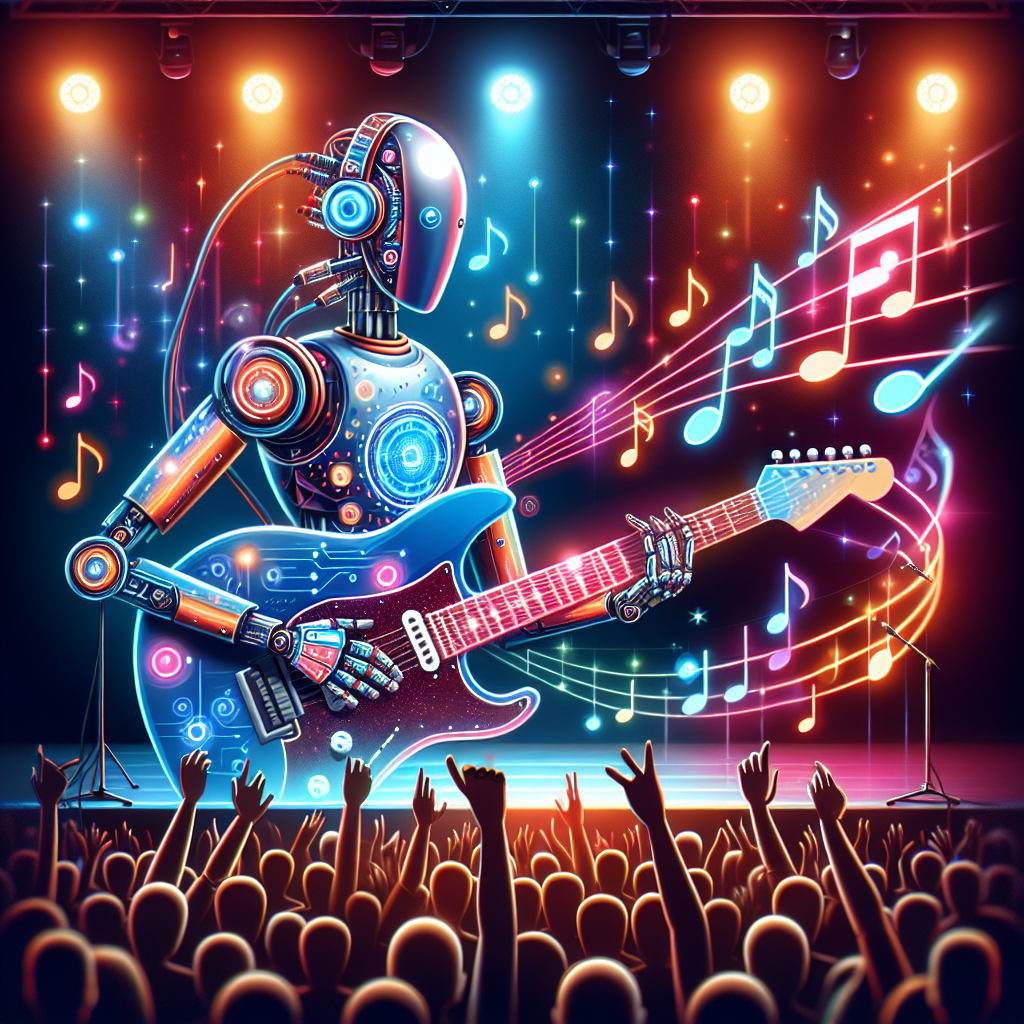AI in Live Music Performances
Artificial intelligence (AI) has become a prominent player in many industries, and the music industry is no exception. In recent years, AI has made significant strides in revolutionizing live music performances, enhancing the overall experience for both artists and audiences. From generating unique musical compositions to enhancing lighting and stage effects, AI has opened up a world of possibilities for live music performances.
One of the most significant ways AI is being used in live music performances is in the creation of original music compositions. AI algorithms can analyze vast amounts of musical data to generate new and innovative compositions that push the boundaries of traditional music. This technology allows artists to experiment with new sounds and styles, creating music that may not have been possible without the help of AI. Some artists have even integrated AI-generated music into their live performances, showcasing the capabilities of this technology to audiences around the world.
In addition to generating music, AI is also being used to enhance the visual aspects of live music performances. AI-powered lighting and stage effects can create stunning visuals that sync up perfectly with the music being played. By analyzing the tempo, rhythm, and mood of the music, AI algorithms can adjust lighting colors, patterns, and intensity in real-time, creating a dynamic and immersive experience for audiences. This technology can take live music performances to the next level, creating a truly multi-sensory experience that engages the audience on multiple levels.
Another way AI is being used in live music performances is through the use of virtual reality (VR) and augmented reality (AR) technology. AI algorithms can create virtual environments that allow audiences to immerse themselves in the music, experiencing it in a whole new way. By wearing VR headsets or using AR apps on their smartphones, audiences can interact with the music in real-time, creating a truly interactive and engaging experience. This technology can help artists connect with their fans on a deeper level, creating a sense of intimacy and connection that goes beyond the traditional concert experience.
Furthermore, AI is also being used to improve the overall performance of musicians on stage. AI-powered software can analyze a musician’s playing in real-time, providing feedback on timing, pitch, and technique. This technology can help musicians improve their skills and deliver a flawless performance, even in high-pressure live settings. By using AI to enhance their performances, musicians can take their craft to new heights and captivate audiences with their talent and skill.
Despite the many benefits of using AI in live music performances, there are some concerns and challenges that artists and audiences may face. One of the main concerns is the fear that AI will replace human musicians altogether, leading to a loss of creativity and authenticity in live music. While it is true that AI can generate music and enhance performances in ways that were previously impossible, it is ultimately up to the artists to decide how they want to incorporate AI into their performances. Many artists see AI as a tool to enhance their creativity and push the boundaries of what is possible in music, rather than a threat to their craft.
Another concern is the potential for technical glitches and malfunctions during live performances. AI-powered systems are complex and require a high level of technical expertise to operate effectively. If something goes wrong during a live performance, it can have a significant impact on the overall experience for both artists and audiences. To mitigate the risk of technical issues, artists and production teams must undergo thorough testing and preparation before incorporating AI into their live performances. Additionally, having backup systems in place can help minimize the impact of any potential glitches that may occur.
FAQs
Q: How is AI used in live music performances?
A: AI is used in live music performances in a variety of ways, including generating original music compositions, enhancing lighting and stage effects, and improving the overall performance of musicians on stage. AI algorithms can analyze musical data to create new compositions, adjust lighting in real-time, and provide feedback to musicians on their playing.
Q: Will AI replace human musicians in live performances?
A: While AI technology can generate music and enhance performances in new ways, it is ultimately up to the artists to decide how they want to incorporate AI into their performances. Many artists see AI as a tool to enhance their creativity and push the boundaries of what is possible in music, rather than a threat to their craft.
Q: What are some potential concerns with using AI in live music performances?
A: Some potential concerns with using AI in live music performances include the fear of AI replacing human musicians, technical glitches and malfunctions during live performances, and the impact on the overall authenticity and creativity of the music. Artists and production teams must carefully consider these concerns and take steps to mitigate any potential risks.
In conclusion, AI has the potential to revolutionize live music performances in ways that were previously unimaginable. From generating original music compositions to enhancing visual effects and improving musicians’ performances, AI technology is opening up a world of possibilities for artists and audiences alike. While there are some concerns and challenges to overcome, the benefits of using AI in live music performances far outweigh the risks. As technology continues to advance, we can expect to see even more innovative uses of AI in live music performances, creating truly unique and immersive experiences for audiences around the world.

